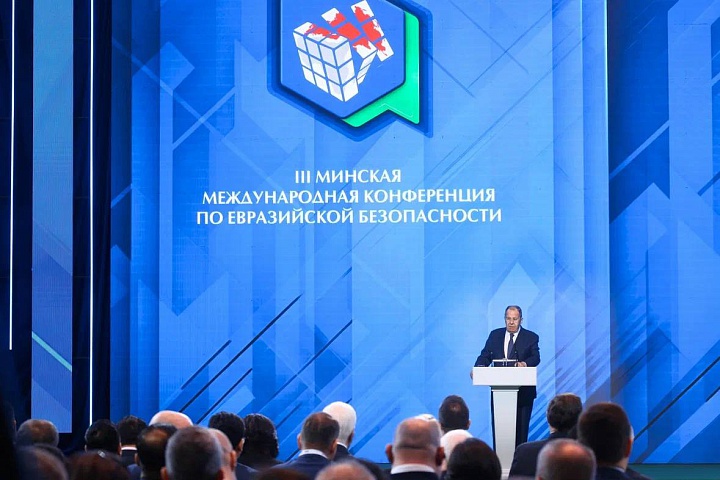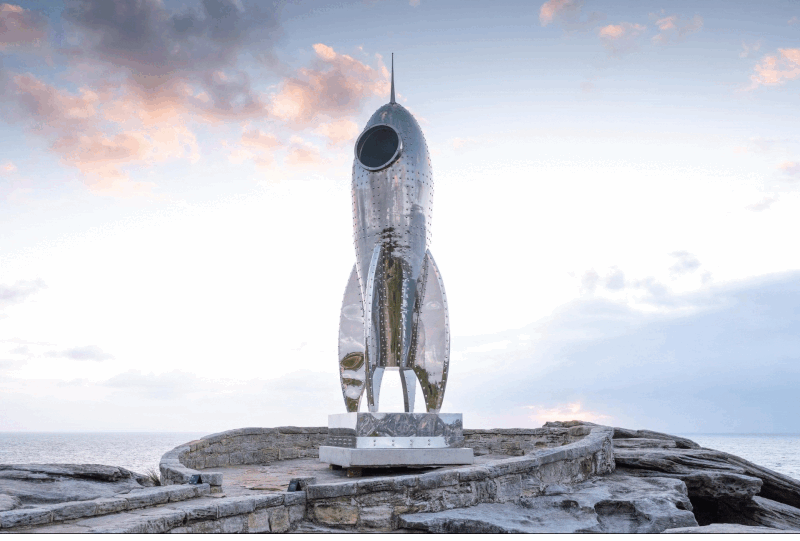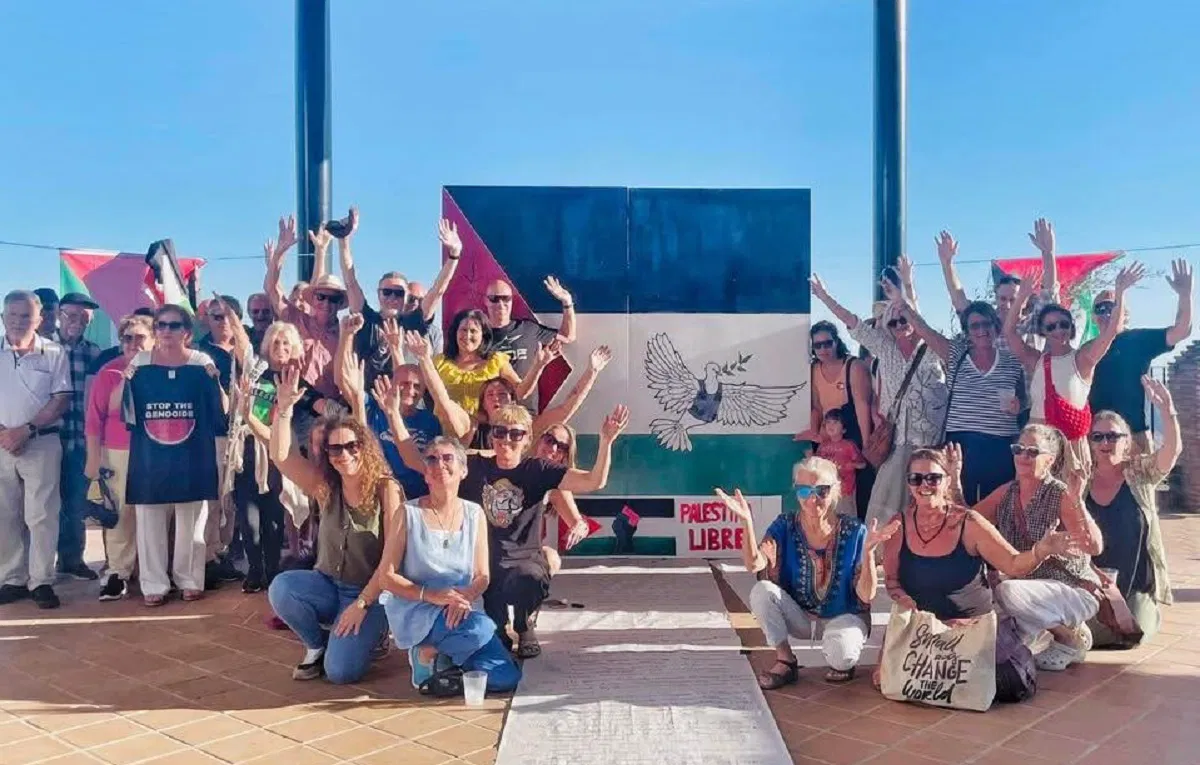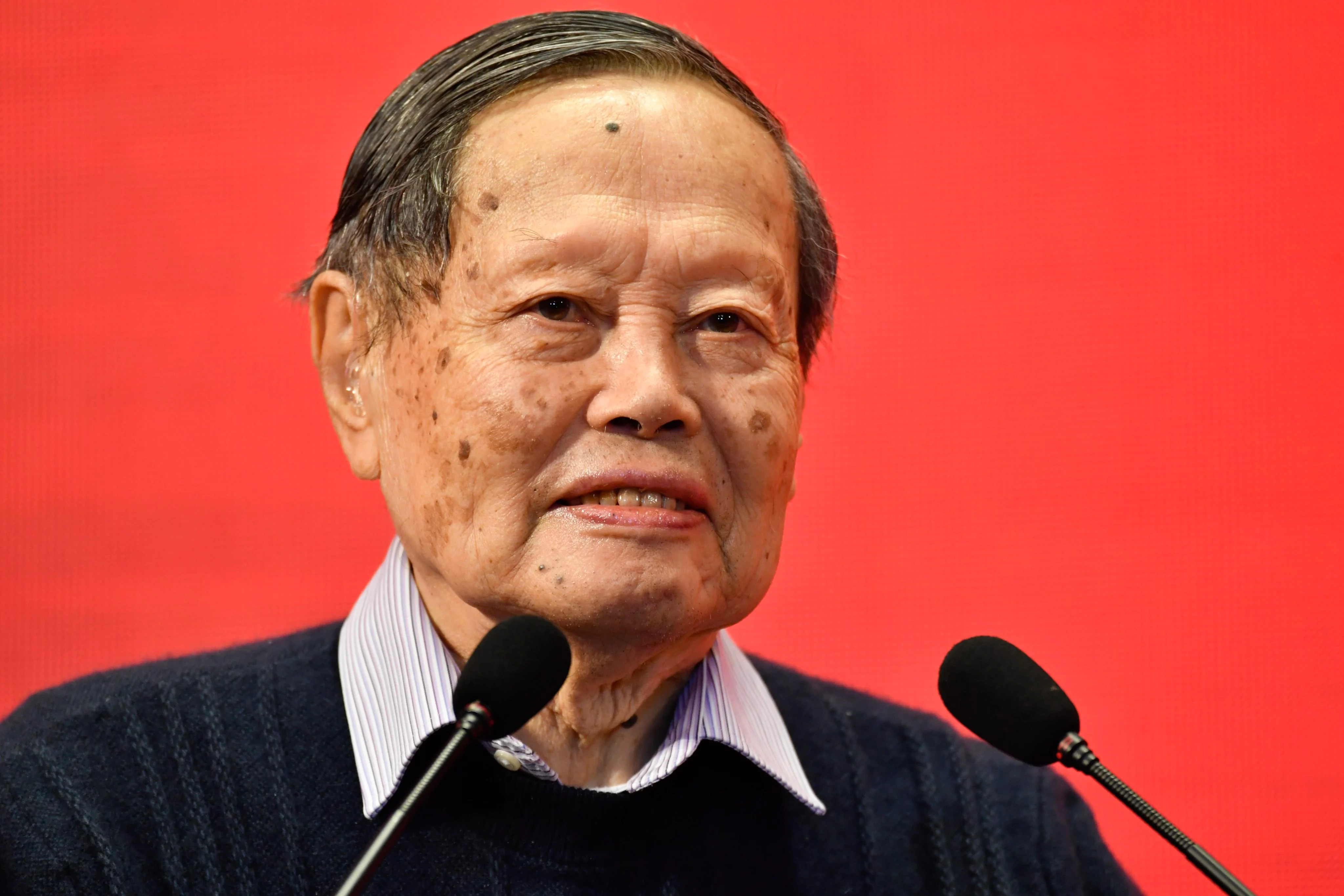Copyright finchannel

I was delighted to be invited once again to speak at this podium. President of Belarus Alexander Lukashenko is holding this conference for a third year now (1, 2). It has established itself as a leading international platform for discussing key security-related topics for the Eurasian space, just as my friend and colleague, Minister of Foreign Affairs and Trade of Hungary, Péter Szijjártó, has just said in his remarks. I think that it is now obvious to everyone that Eurasia is at the geopolitical centre of a nascent multipolar world order today. It is here that processes shaping the future of international relations are unfolding. I am primarily referring to the emergence of several independent civilisational centres representing the Global Majority across the Eurasian continent. President of Russia Vladimir Putin has said many times that in today’s world, they are the ones setting the tone in international affairs. By doing so, they bring forward the day when the world will free itself from the shackles of eras past, primarily in terms of security and economic development. We can see that an overwhelming majority of NATO and EU countries are refusing to recognise an objective truth – the era of Western dominance has come to an end and we entered a new historical era. This is what sets apart Russia, our partners within the CIS, China, India, Iran and the DPRK, as well as all those Eurasian countries which are convinced in the need to ensure unwavering compliance with the principles of sovereign equality and indivisible security for all, not just the chosen ones who believe that they stand above the law and are not bound by any moral imperatives – this is what offers a foundation for ensuring stability and wellbeing for our continent. Russia and our allies cannot be blamed for undermining and then terminating, i.e. burying, international arms control agreements in recent years. NATO has not halted its expansion effort, even for a moment, despite the assurances provided back in the day to the Soviet leaders not to move east even by an inch. They are doing this despite the commitment they have assumed at the highest political level within the OSCE to refrain from reinforcing their own security at the expense of others and not to seek regional, let alone, global dominance. They planned and provoked the conflict in Ukraine, which dealt a final blow to the Euro-Atlantic Security model, which used to rely on NATO, the OSCE and the European Union. Over the past eight years, the EU evolved into a Euro-Atlantic component of this setting. Today, there are voices coming from Europe about building a new European security system, but having floated this idea, they instantly add that there is no place for Russia and Belarus within this framework. Take President of France Emmanuel Macron’s initiative to create the so-called European Political Community, while intentionally and publicly refusing to invite Russia and Belarus to join it. This mounts to creating something akin to a European chapter of the OSCE while excluding two countries whose policies the West views as objectionable. President of Belarus Alexander Lukashenko elaborated on this topic during his remarks today in a convincing manner. By the same token, they do not make any secret of the preparations for a new major European war. This effort is taking place to the west of the Union State. For this purpose, they are creating coalitions. In July 2025, France and Great Britain agreed to coordinate their nuclear forces by creating an Entente Cordiale-like framework for designing missile systems. The Germans signed an agreement with the UK, which basically amounts to establishing military cooperation, and in recent days we have been hearing calls coming from London to add a nuclear dimension to this military cooperation between the UK and Germany. The militarisation of Europe is gaining traction with more funding for defence manufacturers, large-scale exercises, and efforts to perfect logistics for moving troops to the so-called eastern front by using the infrastructure of countries which are not part of the North-Atlantic Treaty Organisation. The plans to intensify NATO activity in the Arctic, which we (and I am convinced the majority of sensible nations) would like to see as a territory of peace and cooperation, give significant cause for concern. Peace and cooperation in the Arctic is what the Arctic Council initially agreed upon but since those agreements, the West has been trying to isolate Russia from this forum. It is the European members of NATO that are prolonging the armed conflict in Ukraine by funnelling weapons into the Kiev regime and providing it with financial and political support. Most European leaders are at pains to persuade the US administration against the idea of reaching a settlement in Ukraine by eliminating the root causes of the conflict at the negotiating table. We hope that US President Donald Trump remains sincere about his aspiration to resolve the Ukrainian crisis and will persevere in adhering to the principles developed at the summit in Anchorage — the principles founded on America’s proposals. Europe has been groundlessly accusing Russia of planning an invasion of NATO and EU countries. European leaders invented this nonsense and repeat it in a conscious deceit of their own nations. By inflating the anti-Russia hysteria on the principle of “war will justify everything,” as we say in Russia, they are trying to blame Moscow for their own mistakes, including the numerous mistakes and failures with regard to Ukraine. My question is: do Europeans feel safer when their elites are taking off gun covers? I think the answer is obvious. We have stated repeatedly that we have never had and have no intention to attack any member of NATO or the European Union. We are willing to formalise this statement in the future security guarantees for this part of Eurasia, which the EU leaders are avoiding on a truly collective basis, proudly claiming that since the Ukrainian crisis, there must be security guarantees against Russia rather than with Russia. This is their mindset. We are also concerned that NATO is artificially expanding its area of responsibility far beyond the Euro-Atlantic region. To this end, the alliance has advanced the notion of the “indivisibility” of its security and that of the Indo-Pacific Region. When we ask them how these steps correlate with the North Atlantic Treaty, we hear that the organisation remains a purely defensive alliance and operates to repel threats to its members — but, apparently, threats are coming from all directions now, even from the South China Sea and the Taiwan Strait. The North Atlantic Alliance is seeking to claim its place in the Pacific Ocean while undermining the foundations of the regional security architecture that has been growing around ASEAN’s central role for decades. The obvious purpose is to contain China, isolate Russia and oppose the DPRK. NATO does not leave other Eurasian regions without its attention, including the Middle East, the South Caucasus, and Central and South Asia. These sub-regions are dealt with on an individual basis rather than in the context of concerns about pan-continental or pan-Eurasian interests. NATO is trying to secure its position everywhere and exert its influence on these processes, this influence being extremely negative in most cases due to the alliance’s aggressive policy. A reasonable question arises: if this is the general trend, do we want our immense and beautiful continent to become NATO’s patrimony? We cannot agree to this. A fundamentally different philosophy of interstate collaboration, rather than the bloc thinking of the Cold War era, is needed in the new environment where all countries, their economies and general stability are interdependent. Life itself is pushing us to engaging in a new effort to arrange our geographical space in the spirit of multipolarity and multilateralism. Russia has taken the first steps. Back in 2015, Vladimir Putin, speaking at the Russia-ASEAN Summit, suggested establishing a Greater Eurasian Partnership that envisaged the creation of a continent-wide contour of equitable and mutually beneficial cooperation via the expansion of trade and economic ties and alignment of integration processes, including those unfolding within the framework of the CIS, SCO, EAEU, the Union State, ASEAN, the Gulf Cooperation Council, and other organisations. A little over a year ago, President of Russia Vladimir Putin put forward an initiative to create Eurasian security architecture based on the principle of its indivisibility. We view this as a constructive alternative to the “bankrupt” institutions that served the Euro-Atlantic model, where the “colleagues” from the Atlantic Ocean’s other coast played an excessively significant role. We are not going to instruct anyone as to who should cooperate with whom; we are asking a different question, namely: Why not think about creating a continent-wide architecture open to all countries and associations based in Eurasia? Eurasia has many sub-regional, integration and military-political groups, as do Africa and Latin America, where, apart from sub-regional organisations, there are continental forums like the African Union and the Community of Latin American and Caribbean States. In Eurasia, there is no umbrella organisation that would provide a platform for a frank and equitable exchange of views. I think it is quite important that the initiative advanced by President of Belarus Alexander Lukashenko follows precisely this path. It seems to be a very promising initiative. I am sure that it will enjoy a great future. True collective security cannot be reduced to serving the interests of a narrow group of the “select few.” We have mentioned this. Security will either be universal or there will be no security at all. Every man for himself. Russia favours the situation where each state is recognised as having an equal right to choose ways of ensuring its security, from military-political neutrality to participation in alliances. But this right of choice cannot be implemented in isolation from another rule that is of no less importance, a rule that has also been mentioned by President of Belarus Alexander Lukashenko. I am referring to the premise that no one can strengthen their security at the expense of others. Not a single country, a group of countries, or an organisation should aspire to regional domination. Regrettably, NATO is doing precisely that. In promoting the basic postulates of Eurasian security at multilateral venues, Russia seeks to introduce them into practice by signing bilateral agreements. Several latest examples include our agreements on security guarantees with Belarus, on comprehensive strategic partnership with the DPRK and the Islamic Republic of Iran. Encouraging interaction between various associations on our common continent is yet another crucial area. We attach special importance, as far as security factors are concerned, to the CSTO and SCO, which have amassed much experience of ensuring military-political stability and combating new challenges and threats. The CIS has much potential as well, and it is strengthening its ties with the CSTO and the SCO. Quite recently, a decision was approved to create a new unifying format, CIS Plus, taking for its basis a proposal suggested by President of Kazakhstan Kasym-Jomart Tokayev. We support another Kazakhstani initiative to transform the Conference on Interaction and Confidence Building Measures in Asia into a fully-fledged organisation of Eurasian scope. Eurasian security is one of the central topics in our dialogue with China. It is very important that Russia’s vision of Eurasia’s security architecture for the future resonates with the Global Security Initiative as put forward by the President of the People’s Republic of China. It provides for addressing the root causes of all conflicts as a perennial principle. It is essential that this principle materialises, including in Ukraine and on Palestinian territories. As for the specific challenges for the Eurasian continent, we have been paying special attention to preventing the use of force on the Korean Peninsula, promoting stability in Afghanistan and along its borders, achieving a fair settlement for the Palestinian issue, as well as bringing relations between Iran and Arab countries back on track as per the Russian initiative to create a collective security system in the Persian Gulf region. We reaffirm our steadfast commitment to preserving ASEAN’s centrality in terms of enabling Southeast Asian countries and their partners from various regions to work together on the basis of the principles of equality and inclusiveness. ASEAN-centric structures have accumulated a wealth of experience in promoting collective efforts to counter common challenges and threats. We believe that reinforcing our partnership within these frameworks will bring about a seamless space of equal and indivisible security. In our opinion, strengthening cooperation between ASEAN, the SCO and CIS is another promising option. Put forward by Belarus, the initiative to draft a Eurasian Charter for Diversity and Multipolarity in the 21st Century is designed to play a consolidating role, as has been said. President of Belarus Alexander Lukashenko has elaborated on this topic and reaffirmed his commitment to these initiatives, along with the need to make practical steps towards fulfilling principles which are largely shared by many countries. Russia supports this idea of great potential and is proactively promoting it. We are ready to engage in substantive discussions regarding any constructive initiatives and proposals to further promote a sense of Eurasian belonging by doing as much as possible so as to use the immense comparative advantages of our continent for the benefit of all its countries. This includes the Europeans, too. They are our neighbours and live in Eurasia. We are delighted to greet representatives of European countries taking part in today’s conference, including the European Union, NATO and others. Meanwhile, present-day elites in the EU and NATO have been seeking to isolate anyone trying to follow an independent policy by prioritising national interests and common sense. This made the prospect of engaging in meaningful dialogue with most of them a far-fetched proposition. Bureaucrats in Brussels must renounce their high-browed claims to an exceptional status and their hostile policies targeting many other Eurasian countries, including Russia and Belarus. We cannot rule out the need to develop a new security framework for Europe, but this time it will be part of a pan-Eurasian architecture. In conclusion, I would like to emphasise that Russia views the emergence of a system ensuring equal and indivisible security for Eurasia as an objective historical process and a means of facilitating the sovereign development of the participating countries. By agreeing on universally acceptable security guarantees, including regarding external threats from the outside of the Eurasian continent, we can build a shared space free from conflicts and offering a favourable environment for mutually beneficial and effective cooperation. I congratulate the Minsk forum on becoming an annual event and wish all of us every success in our efforts.



